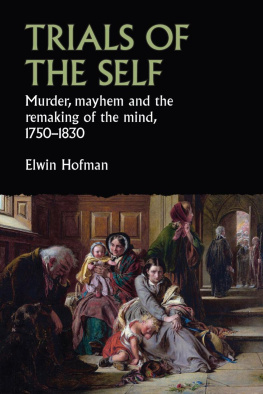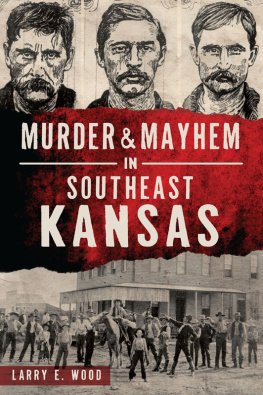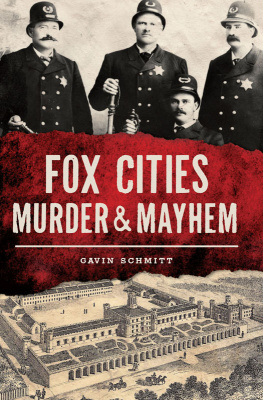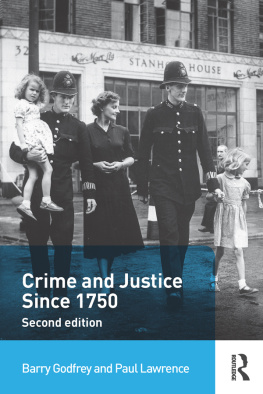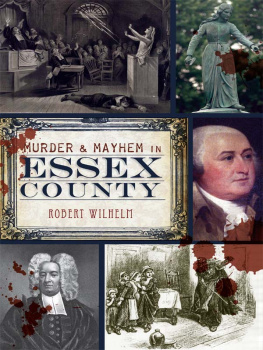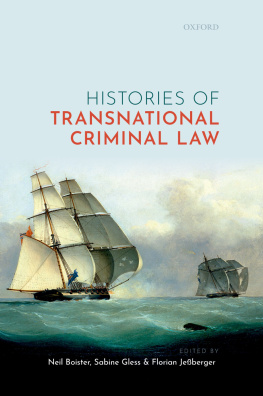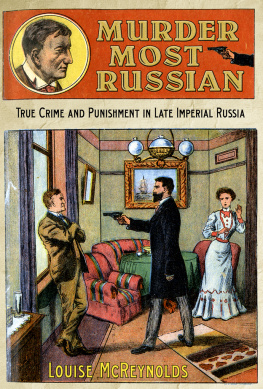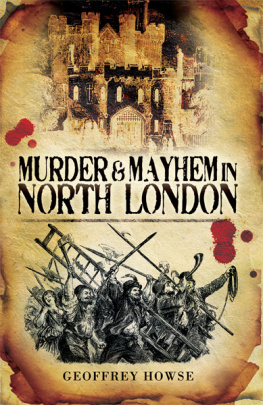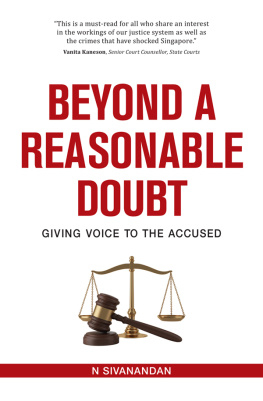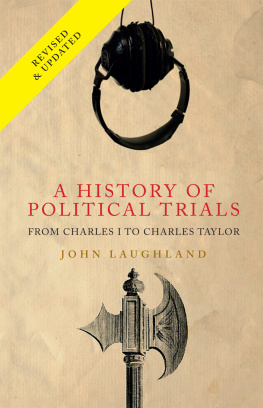STUDIES IN EARLY MODERN EUROPEAN HISTORY
This series aims to promote challenging and innovative research in all areas of early modern European history. For over twenty years it has published monographs and edited volumes that make an original contribution to our understanding of the period and is particularly interested in works that engage with current historiographical debates and methodologies, including race, emotions, materiality, gender, communication, medicine and disability, as well as interdisciplinary studies. Europe is taken in a broad sense and the series welcomes projects on continental (Western, Central and Eastern Europe), Anglo-European and trans-cultural, global histories that explore the worlds relationship with Europe during the sixteenth to eighteenth centuries.
series editors
Sara Barker, Joseph Bergin, Laura Kounine and William G. Naphy
Also available in the series
Jews on trial: the papal inquisition in Modena, 15981638 Katherine Aron-Beller
Sodomy in early modern Europe ed. Tom Betteridge
College communities abroad: Education, migration and Catholicism in early modern Europe eds Liam Chambers and Thomas OConnor
Early modern war narratives and the Revolt in the Low Countries eds Raymond Fagel, Leonor lvarez Francs and Beatriz Santiago Belmonte
Princely power in the Dutch Republic: patronage and William Frederick of Nassau (161364) Geert H. Janssen, trans. J. C. Grayson
Representing the King's splendour: communication and reception of symbolic forms of power in viceregal Naples Gabriel Guarino
The English Republican tradition and eighteenth-century France: between the ancients and the moderns Rachel Hammersley
Power and reputation at the court of Louis XIII: the career of Charles d'Albert, duc de Luynes (15781621) Sharon Kettering
The anxiety of sameness in early modern Spain Christina H. Lee
Absolute monarchy on the frontiers: Louis XIV's military occupations of Lorraine and Savoy Phil McCluskey
Feudalism, venality, and revolution: Provincial assemblies in late-Old Regime FranceStephen Miller
Catholic communities in Protestant states: Britain and the Netherlands c.15701720 eds Bob Moore, Henk van Nierop, Benjamin Kaplan and Judith Pollman
Daums boys: Schools and the Republic of Letters in early modern Germany Alan S. Ross
Mary and Philip: The marriage of Tudor England and Habsburg Spain Alexander Samson
Orangism in the Dutch Republic in word and image, 16501675 Jill Stern
The great favourite: the Duke of Lerma and the court and government of Philip III of Spain, 15981621Patrick Williams
Full details of the series are available at www.manchesteruniversitypress.co.uk
Trials of the self
Murder, mayhem and the remaking of the mind, 17501830
Elwin Hofman
MANCHESTER UNIVERSITY PRESS
Copyright Elwin Hofman 2021
The right of Elwin Hofman to be identified as the author of this work has been asserted by them in accordance with the Copyright, Designs and Patents Act 1988.
Published by Manchester University Press
Altrincham Street, Manchester M1 7JA
www.manchesteruniversitypress.co.uk
British Library Cataloguing-in-Publication Data
A catalogue record for this book is available from the British Library
ISBN 978 1 5261 5314 2 hardback
First published 2021
The publisher has no responsibility for the persistence or accuracy of URLs for any external or third-party internet websites referred to in this book, and does not guarantee that any content on such websites is, or will remain, accurate or appropriate.
Cover image: Abraham Solomon, Waiting for the Verdict, 1859. Gift of Barbara and Norman S. Namerow. Digital image courtesy of the Getty's Open Content Program.
Typeset
by Deanta Global Publishing Services, Chennai, India
Ive really been trying to self-improve lately. [] Im focusing on trying to get back to the truest version of myself.
How do you know that getting back to your truest version of yourself is gonna be an improvement?
Dialogue between Geoffrey and Josh in Please Like Me (2016)
Contents
AC-ANT | Assize Court of Antwerp |
AC-BRA | Assize Court of Brabant |
AC-WEST | Assize Court of West Flanders |
ADM-POL | Administrative Archives: Police |
CAB | City Archives, Brussels |
FA | Felix Archives, Antwerp |
FIK | Court of the First Instance of Kortrijk |
HA | Historical Archives |
MA | Modern City Archives |
NA | National Archives, Brussels |
NA2 | National Archives 2 Joseph Cuvelier Repository, Brussels |
OCAK | Old City Archives, Kortrijk |
PCAP-C | Privy Council Austrian Period Cartons |
SABE | State Archives, Beveren |
SABR | State Archives, Bruges |
SAK | State Archives, Kortrijk |
V | Vierschaer (High Tribunal) |
It is only appropriate for a book in which confessions figure so prominently to begin with a confession of my own. So I confess: acknowledgements are my favourite part of many books. They are at once their most intimate and their most formalistic part. People speak personal words and thank their closest friends; pretending to be naively sincere and unaware of the fact that everyone writes almost the exact same things. Acknowledgements, it has been observed, are displays of the authors scholarly networks, competences and identities. They are, in effect, cleverly disguised CVs, covering everything from mentors to marital status.
As is common in acknowledgements, I have to start with the work of others. This book would not have existed were it not for many generous scholars who read portions (or all) of it and were willing to discuss my research. Tom Verschaffel has always been my first resort for all my questions. His insights are always fundamental, his demeanour calm and convivial, his comments inspiring and encouraging. Dana Rabin, Geertje Mak, Henk de Smaele, Johan Verberckmoes and Kaat Wils have been exceptionally helpful by thoroughly reading an earlier version of this text and providing essential comments. I have further benefited from feedback and encouragement from the other scholars at the Cultural History research group in Leuven, particularly Jo Tollebeek, Pieter Huistra, Nelleke Teughels, Andreas Stynen, Liesbet Nys, Timo Van Havere, Raf De Bont, Joris Vandendriessche, Jolien Gijbels, Veronique Deblon, Tinne Claes, Kate Kangaslahti, Marjoleine Delva and Matthias Meirlaen. Their intellectual and moral support has been invaluable. Elsewhere, Sara Cosemans, Brecht Deseure, Josephine Hoegaerts, Theo van der Meer, Magaly Rodriguez Garcia, Xavier Rousseaux, Pieter Spierenburg, Dorothe Sturkenboom and Tine Van Osselaer all commented on parts of my research, from early proposals to chapter drafts. I am immensely grateful for their time and their insights. The editors and reviewers for Manchester University Press made valuable suggestions when this book was reaching its final stages.

